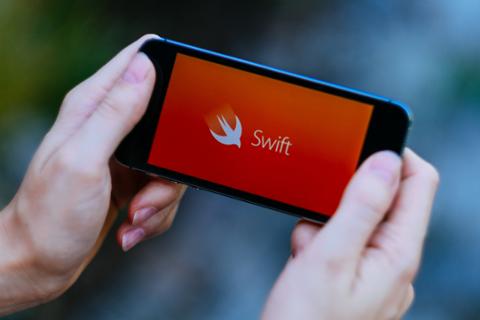In the 16 years since Apple unveiled the iPhone, iOS developers have built and maintained a growing ecosystem of apps and services. If you’re curious about an iOS developer career path, be warned: there’s no “typical” one. However, the sheer breadth of the iOS ecosystem means you can choose your own path and find lots of opportunities to grow (and make money).
Many iOS developers begin their career paths as junior developers, then rise to more senior and managerial positions. At the largest companies with mission-critical iOS apps, a senior iOS developer may oversee a large team of professionals. As a result, an effective iOS career isn’t just about technical skills; you’ll also want to develop “soft skills” such as communication and empathy, which will allow you to effectively work with team members, stakeholders, and (if you’re a freelancer or contractor) clients.
With all that in mind, let’s break down a typical iOS developer career path and what you can expect as an iOS developer.
What does an iOS developer do?
An iOS developer builds and maintains apps and services for iOS, which is the operating system for Apple’s iPhone and iPad. Because Apple has taken great strides in recent years to improve the cross-platform capabilities of apps, many iOS developers will end up working with the company’s other operating systems, including macOS and watchOS.
What programming languages does an iOS developer need to know?
For decades, Apple developers relied upon Objective-C as the main programming language for iOS. But in 2014, Apple introduced Swift, which was intended as a replacement for Objective-C. If you’re totally new to iOS, start your learning journey at Apple’s website, which features a ton of iOS documentation, including tutorials and sample code. If you’re totally new to coding (it’s OK!), you should also explore Swift Playgrounds, which teaches the principles of coding in a Swift context.
If you’re familiar with how to program, Apple’s developer website has a (retired) hub that breaks down Objective-C coding; websites such as Tutorialspoint, Medium and many more will further expand your knowledge of this older language. Devote lots of time to learning Swift, which means starting at Swift.org, where you can find a dizzying array of documentation, sample code, and access to forums; Apple’s developer website also has a Swift features breakdown.
Once you have a handle on Swift and Objective-C, you can proceed onto a career path as an iOS developer. We’ll break down more necessary iOS skills in a little bit.
What’s a typical career path for an iOS developer?
The “typical” career path for an iOS developer can vary depending on the individual's skills, experience, and goals. Someone who wants to build games for iOS on a freelance basis, for example, will do things differently than someone who wants to build iOS apps for the enterprise. That aside, there are some common steps that many iOS developers take as they progress in their careers.
Here is a possible career path for an iOS developer:
Junior iOS developer
Entry-level iOS developers often have a bachelor's degree in computer science or a related field, but it’s possible to get a job as an iOS developer without a degree. They also have some experience with the Swift programming language, and should have experience with Objective-C. Entry-level iOS developers may start as interns, working on small projects under the supervision of more experienced developers.
Mid-Career iOS developer
Mid-career iOS developers often have the most straightforward job title, along with several years of experience; they are proficient in the latest iOS development technologies. They may be responsible for designing and developing iOS apps or leading a team of developers. Mid-career iOS developers are also more involved in the testing and debugging iOS apps.
Senior iOS developer
Senior-level iOS developers have many years of experience and are experts in iOS development. They may be responsible for mentoring and training junior developers, or involved in the architecture and design of large iOS apps. Senior-level iOS developers may also participate in the research and development of new iOS technologies as they’re launched, and will identify which new technologies are most applicable for the platforms and apps their team develops.
Team lead
Those iOS developers with strong leadership and management skills may eventually move into managerial positions. They may become team leads, project managers, or even directors of engineering, all depending on their experience and needs of an employer. In these roles, they would oversee other iOS developers' work and ensure that projects are completed on time and within budget.
What technical skills do iOS developers need?
iOS developers need to have a wide technical skillset to succeed in their role:
Programming language proficiency: As we mentioned above, iOS developers must be proficient in at least one programming language, such as Swift or Objective-C. Swift is the more current (and preferred) language for iOS development. Many developers still use Objective-C, but it is gradually being phased out.
Knowledge of how to use software development tools: iOS developers must be familiar with the software development tools used to create iOS apps, such as Xcode and GitHub. Xcode is the integrated development environment (IDE) used to develop iOS apps. Git and GitHub are version control systems used to track changes to code.
An understanding of iOS frameworks: iOS developers must be familiar with the iOS frameworks used to build iOS apps, such as UIKit, Foundation, and Core Data. UIKit is the framework used to create the user interface of iOS apps, Foundation is the framework for data handling and networking, and Core Data is the framework used for data persistence.
Expertise with design principles: iOS developers need to understand design principles and accessibility. User-centric design is designing products and services with the user in mind. Accessibility is making products and services accessible to people with disabilities.
Testing and debugging: iOS developers must be able to test and debug their code. Testing is the process of finding and fixing errors in code. Debugging is finding and fixing errors in code that have already been found.
Continuous integration and continuous delivery (CI/CD): iOS developers need to be familiar with CI/CD pipelines, which are used to automate the process of building, testing, and deploying code.
Version control: iOS developers need to be familiar with version control systems to track changes to code.
Collaboration: iOS developers need to be able to collaborate with other developers. This includes being able to communicate effectively and work together to solve problems.
Yes, that’s quite a bit to learn! But don’t worry: mastering the skills related to iOS development is a years-long quest, and you’ll eventually touch upon all these things. If you’re looking for a “quick start” when it comes to iOS-related skills and tools to master, consider these:
- SwiftUI: A declarative framework for multiplatform apps, useful for layout and behavior.
- UIKit: A declarative framework for building apps for iOS.
- Xcode: Apple’s IDE for macOS, iOS, iPadOS, watchOS, and tvOS development.
What’s the average annual salary for an iOS developer?
The average annual salary for an iOS developer in the United States is $120,000, according to a variety of sources like Indeed and ZipRecruiter. Note that all salaries depend on a variety of factors, including location, experience, and the quality of portfolio and code; for example, a senior iOS developer at Apple will likely earn far more than someone in a similar position working for a smaller company outside of a major tech hub.
How can someone decide if being an iOS developer is right for them?
Maksym Sytyi, iOS technical lead at Spargo Technologies, says:
“Deciding whether an iOS developer position is right for you depends on several factors:
- “Learn the development process, programming languages (Swift and Objective-C), tools and frameworks used in iOS development.
- “Experiment with basic programming and development guides to see if you like the process and feel comfortable.
- “Consider if you have a passion for technology, app development, and mobile devices. It's important to enjoy problem-solving and keep up to date with the latest trends in the iOS ecosystem.
- “iOS development requires continuous learning, so consider your willingness to keep updated with the latest developments and changes in the iOS platform.
Play around with iOS before committing more time and resources to mastering it. “Trying out some basic programming, specifically in Swift, can help you decide if you enjoy the work,” adds Maksim Kalik, senior iOS engineer at Triumph Labs. “And if you love Apple products, if you see the pros and cons of iOS, and want to participate in this community, then it's already a signal that you might be a great iOS developer.”
What other things do iOS developers need to master?
“XCode,” Kalik says. “This is the primary tool for writing and delivering iOS applications. Writing and debugging code, using Interface Builder, handling version control, performance profiling with Instruments, and application testing.”
Those are all aspects of the full iOS development cycle, which is necessary to learn; steps include initial requirement gathering to design, coding, testing, and deployment. “Mastering the iOS app release process is integral, which includes preparing the app, creating an app in App Store Connect, managing app pricing and availability, uploading the app for review, and strategizing its release,” Kalik adds. “Post-release, developers should be comfortable monitoring app performance, managing updates, and addressing user feedback.”
Joe Coletta, CEO of 180 Engineering, tells Dice: “In addition to a working knowledge of Swift programming, iOS developers need knowledge of iOS frameworks and debugging code. We all make mistakes sometimes, and if you make a mistake, you must know how to fix it. Understanding the iOS platform and the Apple Developer Program is also required for success in iOS development. Knowing both the features and limitations of the platform will allow developers to plan and prepare for just about anything—and help them make a quick and effective decision in a pinch if necessary.”



